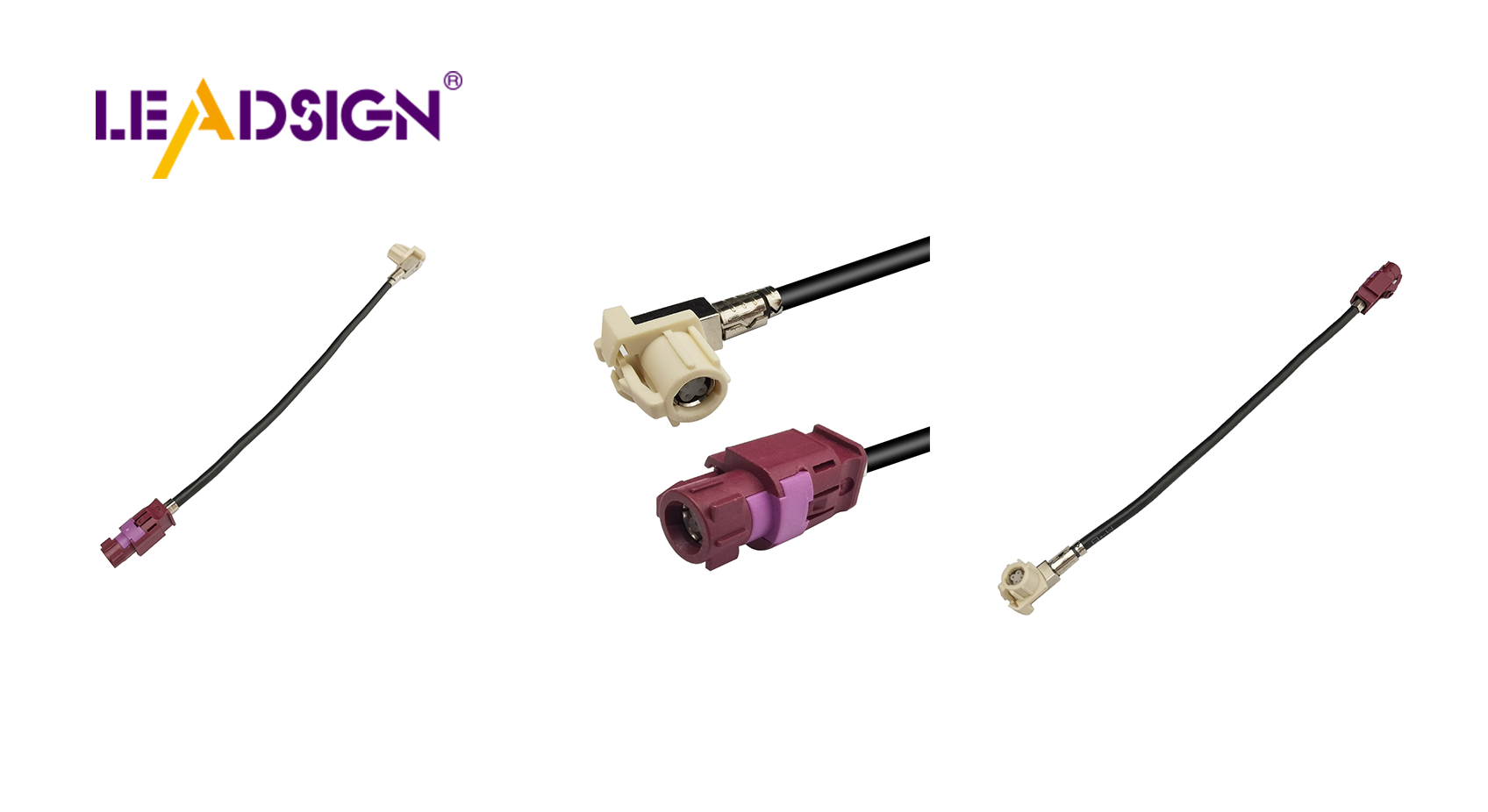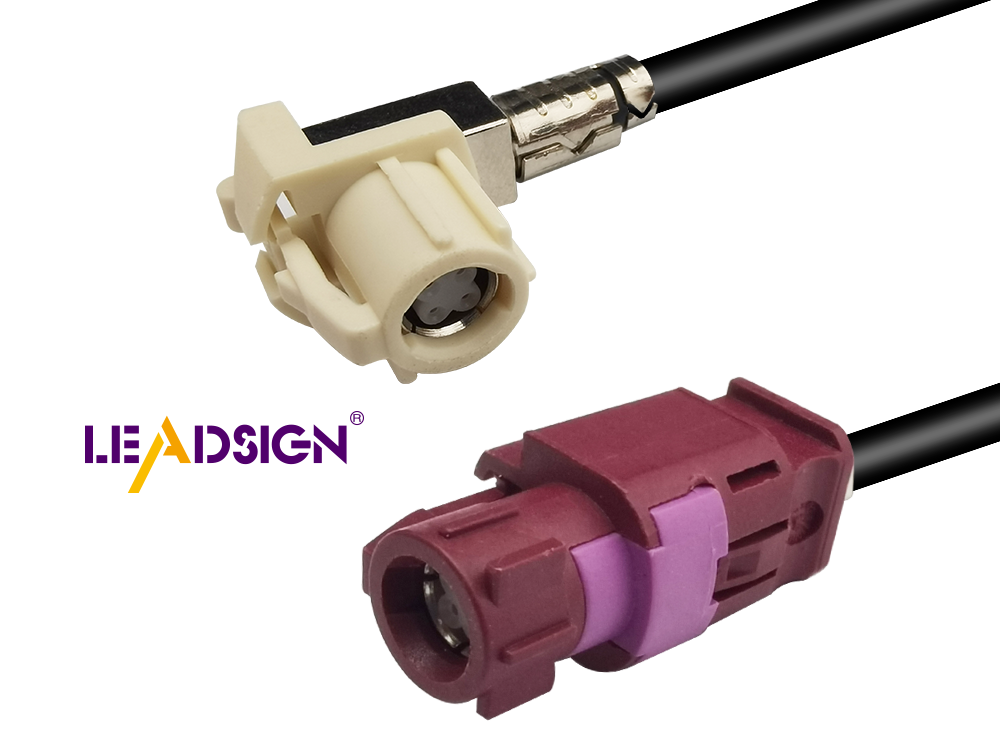Choosing the Right Automotive Wire Connectors: A Complete Guide

Selecting the appropriate automotive wire connectors types is crucial for ensuring your car's safety and functionality. There are various types of automotive wire connectors designed for specific purposes, each serving a unique function. Selecting the right type is essential to prevent issues that may impact basic operations or high-speed data transmission. Consider factors such as environmental conditions and power requirements during the selection process to ensure optimal performance and safety of your vehicle.
Understanding Automotive Wire Connectors

Picking the right wire connectors is key for your car. Let's learn about the types, materials, and sizes to help you choose well.
Types of Wire Connectors
Knowing different wire connectors helps you pick the best one.
Crimp Connectors
Crimp connectors are liked for being strong and easy to use. You attach them by squeezing them onto wires. They hold tight, even when things shake.
Solder Connectors
Solder connectors make a lasting bond by melting solder on wires. They conduct electricity well and work in shaky places. But they need more skill and tools than crimp ones.
Push-On Connectors
Push-on connectors are simple and quick to use. Just push the wire in. They're great for short-term setups or hard-to-reach spots.
Materials in Connectors
The stuff used in wire connectors affects how they work and last.
Copper
Copper is popular because it conducts electricity well and bends easily. It doesn't rust, so it's good for most cars.
Aluminum
Aluminum is light and cheap but needs care to stop rusting. It's used where weight matters.
Brass
Brass balances strength with conducting power. It's used where things need to be tough, like near engines.
Connector Sizes and Ratings
Choosing the right size keeps things safe and working well.
Gauge Sizes
Gauge size means how thick a wire can be inside a connector. Picking the right gauge stops wires from getting too hot.
Current Ratings
Current ratings show how much electricity a connector can handle safely. Always match these with your car's needs.
By knowing these parts of wire connectors, you can choose better for your car's safety and performance.
Things to Think About When Picking Connectors
When picking car wire connectors, think about a few things. These help make sure they work well and are safe. Look at the weather, electric needs, and how strong they need to be.
Weather Conditions
Weather affects how long connectors last. Check where they'll be used.
Heat Resistance
Cars can get really hot or cold. Pick connectors that handle both without breaking. Good materials like copper and brass don't mind heat changes.
Water and Rust Resistance
Water and rust can break connectors. Choose ones with coatings or made from rust-proof stuff. Copper doesn't rust, so it's good for cars. Check them often to catch rust early.
Electric Needs
Know what electricity your car needs before choosing wire connectors. This keeps them working safely.
Voltage and Current Limits
Connectors have limits on voltage and current. Make sure they fit your car's needs. Too much power can overheat them and cause problems.
Matching Wire Types
Different wires need different connectors. Make sure they match for a good connection. Wrong matches can cause bad electricity flow.
Strength Needs
Strength shows if connectors hold up under stress.
Toughness
Car wire connectors should handle shaking and stress well. Crimp ones hold tight, so they're good for shaky places.
Easy to Put In
Easy installation matters too. Push-on types are quick to use in tight spots but still need to stay secure.
By thinking about these things, you can pick the best car wire connectors for safety and efficiency.
Best Ways to Use Wire Connectors
To keep your car's wire connectors working well, follow these tips. These steps help them last longer and work better.
How to Install Correctly
Installing right is important for wire connectors to work well. Follow steps and use the right tools for a strong connection.
Tools You Need
Before you start, get these tools ready:
Wire Strippers: To take off the plastic cover from wires.
Crimping Tool: For crimp connectors, this tool makes them fit tight.
Soldering Iron: Needed for solder connectors to join wires firmly.
Heat Gun: Helps with heat shrink tubing for extra protection.
Having these tools makes installing easier and faster.
Steps to Install
Follow these easy steps to install wire connectors:
Strip the Wire: Take off about 1/4 inch of plastic from wire ends using strippers.
Pick the Connector: Choose crimp, solder, or push-on based on what you need.
Attach the Connector:
For crimp connectors, put the wire in and squeeze it tight with a tool.
For solder connectors, twist wires together, insert them, then melt solder on them.
For push-on connectors, just push the wire in until it clicks.
Cover It Up: Use heat shrink or tape to protect against water and rust.
Check It Works: Gently pull on the wire to make sure it's secure.
By doing this, you'll have a strong connection that lasts.
Keep Checking Them
Look at your car's wire connectors often so they don't break and work their best.
Regular Looks
Check regularly for any problems like:
Rusty Spots: Look for rust or color changes where there's moisture.
Loose Wires: Make sure all connections are tight and firm.
Broken Covers: See if there are cracks that show wires inside.
Checking often helps stop big problems later.
Fix Common Problems
If something goes wrong, try fixing it quickly:
Unsteady Connections: If things aren't steady, check how tight they are again.
Too Hot: Make sure they're okay with how much power they carry; too much can heat them up.
Weak Signals: Ensure they're good for fast data needs if used for high-speed stuff.
By fixing these issues fast, your car's wire connections will stay reliable.
Choosing the right automotive wire connectors is very important. It keeps your car safe and working well. Here's a quick summary:
Types and Materials: Learn about different connectors like crimp, solder, and push-on. Pick materials like copper because they last long.
Environmental and Electrical Needs: Think about things like heat resistance and current limits. Make sure they fit what your car needs.
For the best results, talk to connector makers to match your car's needs. Always follow good steps for putting them in and taking care of them. This way, you make your car work better and stay safe.
See Also
The Significance of Fakra Auto Connectors in Contemporary Cars
A Manual for Ford Fakra Connectors
The Significance of HSD Connectors in Automotive Sector

